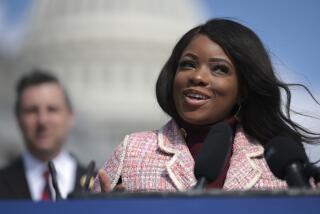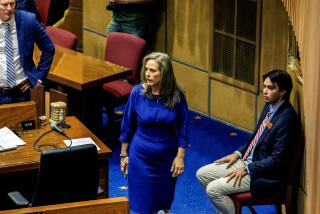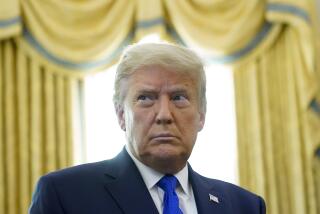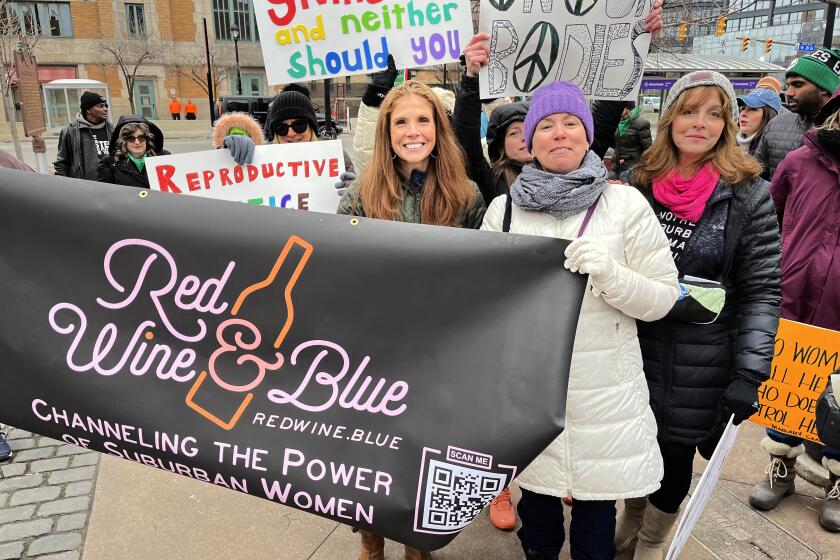An Ovation for Clinton at the Summit
It certainly was not unpleasant for an American to stroll through this politically intense capital city last week, observing the warm public and official reaction to the China-U.S. summit. Many Japanese, whether computer salesman or cabinet minister, began looking at our president with new eyes. They know well that the Chinese, not to mention themselves, can be a torture to deal with. Thus, Tokyoites watched the Bill Clinton-Jiang Zemin show (and what a show it was) as if it were the cliffhanger of a World Cup soccer match. When Clinton met the test, keeping his cool and holding his ground, few U.S. presidents had ever looked much better to them. To be honest, it was hard not to feel proud of Clinton.
War between America and China would force every nation in Asia to take sides and would plunge the region into misery. So a workmanlike relationship between Beijing and Washington is essential to regional peace and prosperity. Fortunately, not every Japanese is quite as pessimistic as Keio University professor Yoshihide Soeya about this relationship: “Everyone must understand that China and the U.S. are in basic conflict. But neither can afford to have a conflict. Even so, tensions will recur, and they will be cyclical and unavoidable.” So when Clinton, a young head of state by Asian standards, survived his first summit with the world’s next likely superpower, Kyodo News editorial writer Mikio Haruna coolly pronounced a judgment that seemed widely shared here: “The young American president looked very confident in handling Jiang.”
Worldwide respect for diplomatic competence is invaluable to an American president. And a sure hand in meeting international tests is what our allies expect. I watched Japanese observing Clinton’s firm demeanor during that repeatedly rebroadcast bilateral glare-and-stare with Jiang over human rights. Japanese noted that Clinton didn’t flinch during the press conference drama as the two presidents had it out. The exchange was generally viewed as a near-brilliant balletic display: Two of the world’s savvier politicians looked to be at the top of their game as they played shrewdly to their respective domestic audiences. Said Takeshi Kondo, the widely known globe-traveling Itochu Corp. executive: “Each of them knew exactly what the other was doing.”
It was obvious that China’s 71-year-old president, like our 51-year-old one, was on a tightrope. Many Japanese, even if inherently distrustful of the Chinese, believe that Jiang, if he holds on to power, could prove a good thing for China and Asia. Those in Tokyo who watch China intently, such as Liberal Democratic Party boss Koichi Kato, appreciate Jiang’s relative pragmatism and sympathize with his enormous problems. In a rare interview in his office at the Japanese Diet, Kato, considered a likely future prime minister, spoke with passion about America’s moral need to make a greater effort to understand that sprawling nation of 1.2 billion people. China, he suggested, is the ultimate intellectual challenge for America, with its historic tendency to view issues through a good guy/bad guy lens. But China, with many inherent contradictions that make it a constant candidate to disintegrate, perhaps like the former Yugoslavia, defies simplification. Said Kato: “If only Americans would understand that important truth, they’ll be able to recover from their current China syndrome.”
The Japanese are under no illusions about China, whose ultimate geopolitical evolution is unpredictable, and they are aware that the unease and distrust is mutual. While applauding Clinton’s summit skills, privately many were offended by the Chinese president’s televised visit to Pearl Harbor. There, in a gesture regarded as a slap at Japan, Jiang made the symbolic point that it wasn’t the Chinese who attacked America, it was those other Asians. “Ordinary Japanese people didn’t like that,” commented Masahiko Ishizuka, a Nihon Keizai Shimbun editorial writer. Quietly last week, the Japanese government let Beijing know of its displeasure.
Deep-seated Sino-Japanese tensions notwithstanding, Clinton’s summit performance last week undoubtedly lowered the overall regional temperature. Almost any time an American president shows respect to any Asian nation, even a rival power, he is viewed here to have shown respect to all of Asia. Beyond that, Japan’s sophisticated political elite appreciates the considerable domestic risk Clinton took to host this summit. Often criticized for lacking interest in Asian affairs, he may finally be developing into the leader that this region has long wanted: a more mature, more engaged-in-Asia president. For all the criticism that Clinton deservedly gets and endures, there are times when a standing ovation is called for. Perhaps it helped to have been half the world away from the summit action to see Clinton more clearly, to understand that this is such a time.
More to Read
Get the L.A. Times Politics newsletter
Deeply reported insights into legislation, politics and policy from Sacramento, Washington and beyond. In your inbox three times per week.
You may occasionally receive promotional content from the Los Angeles Times.






